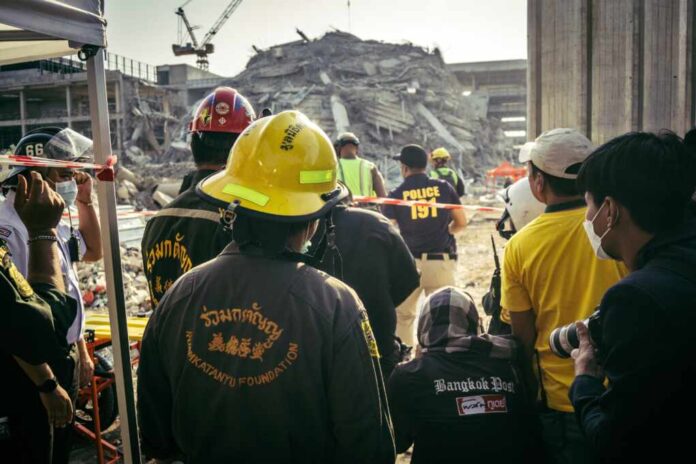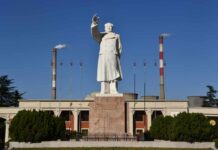
A catastrophic 7.7 magnitude earthquake in Bangkok has revealed troubling issues in construction integrity, focusing attention on Chinese involvement.
At a Glance
- A Thai-Chinese company faces allegations for providing substandard materials leading to a building collapse.
- The quake has highlighted concerns over construction safety and foreign ownership laws.
- Thai authorities demand thorough investigations into the implicated entities.
- Tensions rise between Thailand and China due to the incident.
Earthquake Exposes Construction Lapses
A significant building collapse occurred in Bangkok following a magnitude 7.7 earthquake centered in Myanmar, killing over 47 people in Thailand. The skyscraper’s collapse has drawn scrutiny towards construction safety enforcement in the region. Thai authorities are examining the involvement of the Chinese contractor, China Railway No. 10 Engineering Group, in the infrastructure’s failure, alleging the use of subpar building materials.
The collapse has raised questions about compliance with building standards and foreign business regulations. A key focus has been on Xin Ke Yuan Steel, suspected of supplying inadequate steel rods for the high-rise. Investigations into their operating licenses and materials have intensified. Industry Minister Akanat Promphan highlighted the lack of conformity to safety standards, raising alarms about possible subversion of quality protocols.
Arrests and Ownership Complications
Thai authorities have arrested Zhang Chuanling, an executive with China Railway Number 10, for allegedly operating through nominees contrary to Thai regulations. These nominee arrangements are suspected of bypassing laws that limit foreign business ownership to less than 50%. The Department of Special Investigation (DSI) is actively pursuing Thai executives suspected of facilitating these nominee schemes, complicating diplomatic relations with China.
The legal scrutiny extends to potential illegal bidding practices, construction material quality, and financial misconduct. Xin Ke Yuan Steel’s legal team disputes findings from the collapse, asserting that all their products passed safety checks, though initial tests showed deficiencies. This legal battle could have ramifications for ongoing and future infrastructure projects within the region that rely on international partnerships.
International Relations and Future Protocols
Relations between Thailand and China have been strained due to the collapse of a structure marketed as earthquake-resistant. Subsequent arrests of Chinese nationals attempting to procure documents from the site have exacerbated tensions. These incidents have necessitated a more stringent inspection of Thailand’s building standards and international business conduct.
Prime Minister Paetongtarn Shinawatra has called for comprehensive investigations into all related projects and criticized for slow transparency and response. As investigations continue, Thailand aims to fortify its infrastructure policies, ensuring safety and compliance while maintaining international partnerships.




























